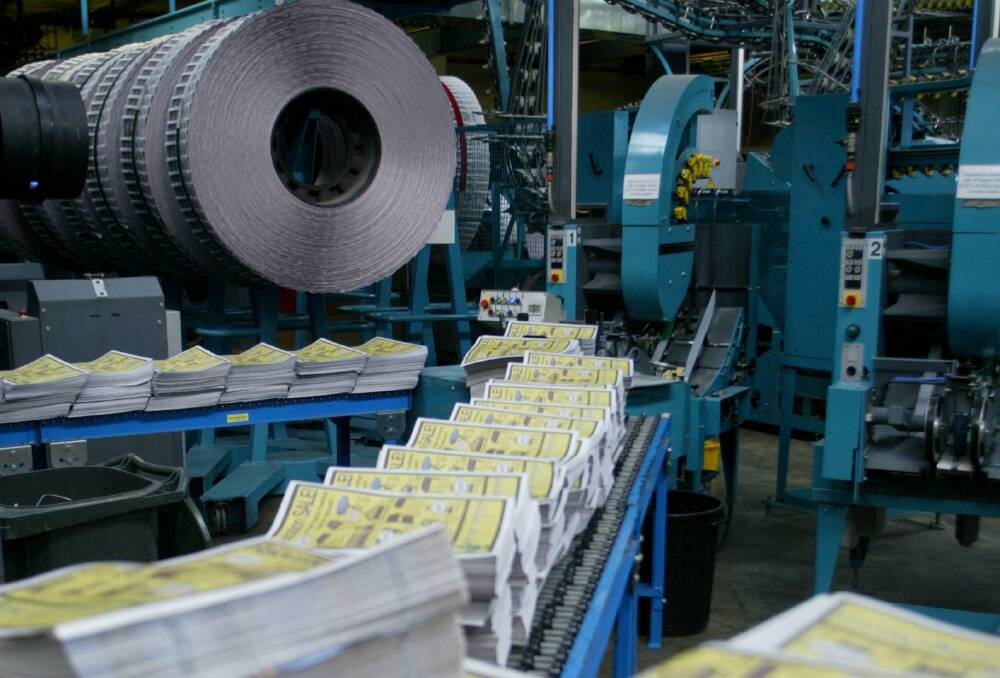
FEW professions have had to overcome as many challenges in the past century as the career of journalism.
Subscribe now for unlimited access.
or signup to continue reading
In my time, the first of these challenges was the computer revolution which transformed newspaper and electronic media production in the late 1970s, destroying the “hot metal” system, making many printers redundant and turning linotype machines into mechanical dinosaurs.
Almost overnight, it seemed, journalists were writing their copy on a computer display unit keyboard instead of a typewriter. Instead of pounding out stories on “hard copy” – also known as paper – and getting it to the subeditors via copy boys or girls, they were pressing a button to send it to the subs who would then knock it into shape and fit it into the layout of the paper, also via computer. Gone were the days when there was a constant rattle of typewriters in a smoke-filled reporters’ room as journalists battled deadlines, sometimes with one cigarette in the mouth and another burning in the ashtray.
The Newcastle Sun published three editions – at 2.30pm, 3.30pm and 4.30pm – every weekday afternoon and, if a big story was breaking, it was not uncommon for us to change Page 1 two or three times. We changed the news pages five times as information reached us on that afternoon in 1969 when Neil Armstrong walked on the moon. When reporters were “missing in action”, the news editor knew where to find them – the Masonic Club across the other side of Bolton Street, the Beach Hotel on the corner of Watt and King streets or the Grand, near the “house of correction” (the Court House).
Like most afternoon newspapers, the Newcastle Sun died due to the arrival of television and competition from free newspapers. But the year before the Sun closed in 1980, the Sun and sister paper the Newcastle Herald pioneered a newfangled computer production system for what became the Fairfax newspaper empire, and the journalists adapted well.
The Herald, of course, has lived long into the computer age and continues to change to the meet the needs of its audience.
The next major challenges – the social media revolution, the introduction of the smartphone and the rapid growth of pay TV – came at the end of my career but have been even more challenging for the “old” media industry.
News is now available almost instantaneously online, putting newspaper circulation and the number of free-to-air TV news listeners under threat.
There are also new avenues for advertising online through websites, social media and video streaming services.
But once again, the “old” media and their journalists have adapted, funneling their news online and making good use of the many talented journalists they still have at their disposal. Radio, too, with its ability to get news out quickly and push it out online has adapted well, particularly the ABC.
So what does the future hold for the journalism profession?
I firmly believe journalists who are talented and have, or can create, a following in whatever expertise they have chosen, hold the key. Readers, listeners and viewers will want the best information from journalists they trust wherever their interest lies.
I think we will eventually turn to online categories like the “rounds” we have in newspapers. Readers will want to learn from the experts in fields such as local government, sport, courts, police and social news. Newspapers with this kind of talent will not only survive but will flourish because they will have the in-depth kind of reporting that cannot be matched online.
The Newcastle Herald, for example, will always be in demand while ever it continues with quality investigatory writing like its ground-breaking “Shine the Light” campaign led by the gifted Joanne McCarthy and the quality feature articles by talents like Scott Bevan.
Local news outlets have to be trusted by their readers, viewers and listeners and their advertisers. This is the kind of trust the Herald relies upon. Other trump cards for the Herald are its in-depth articles about major local breaking news events, its pictorial coverage, particularly of local occasions, and its detailed coverage of sport. All readers, viewers and listeners have a thirst for detail when they are genuinely interested in a subject.
Elsewhere, we will hopefully be able to get back to the days when the journalistic code of ethics really meant something. Then we might be able to put behind us the sort of unethical journalism that spawned the “telephone hacking” scandal in England earlier this decade.
Famous Manchester Guardian editor C. P. Scott defined the true purpose of journalism as fundamentally implying honesty, courage, fairness and a sense of duty to the reader and the community.
“Comment is free, but facts are sacred,” he said. “The voice of opponents, no less than that of friends, has a right to be heard. Comment is also justly subject to a self-imposed restraint. It is well to be frank; it is even better to be fair.”
Former governor of the BBC, Baron Francis Williams, had these additional words for the budding newspaper journalist: “The journalist is traditionally an entertainer; he must entertain or find another trade.”

